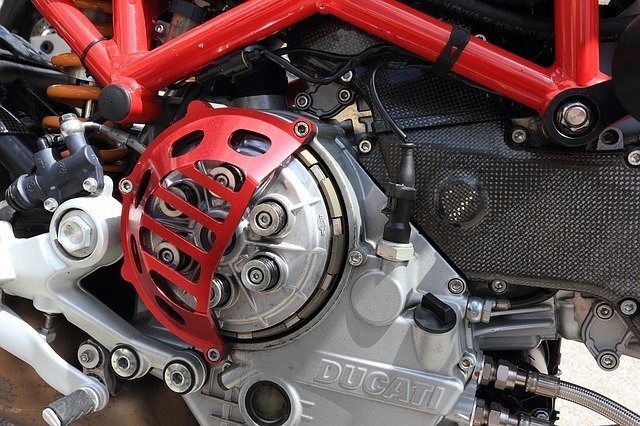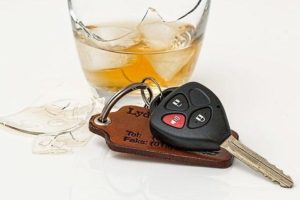Knowing how your motorcycle clutch works is valuable information that will help you better understand the ins and out of your bike. Some bikers are content just knowing that their bike runs. They don’t need to know the why’s and the how’s. Other bikers, however, want a better understanding of just how the motorcycle operates. This blog entry will explain what a motorcycle clutch is and how it works.
The clutch serves to disengage the engine from the transmission temporarily. On a motorcycle, we pull the motorcycle clutch lever in to disengage the transmission from the engine and let it out slowly in order to engage the gears of the transmission with the engine. Inside the clutch are a number of friction plates. They are round with a hole in the middle which allows them to fit down over a clutch hub. When you pull the motorcycle clutch lever, the pressure that keeps the friction plates tight together is released and the flywheel can spin. When you release the lever, the friction plates catch against each other and it then engages the engine to your transmission. In simpler terms, you temporarily disengage the engine from the transmission which allows you to switch the gear into alignment and then you reengage the engine with the transmission and you are now driving in a different gear.
For a free legal consultation,
call 1-800-668-6729
Some clutches are mechanical, with springs and a cable, while others are hydraulic and operate using fluid pressure. Although there are positives and negatives of each, mechanical clutches typically require more hand strength whereas hydraulic clutches allow for easier use but need more maintenance.
Common Motorcycle Clutch Symptoms
Worn Out Clutch – If you have noticed it is more difficult to change gears and transition between gears, the issue could be a worn out clutch. You may notice that your motorcycle is making noises when changing gears or that your clutch has become stiff. These are signs you need a new clutch.
Click to contact our personal injury lawyers today
Motorcycle Cannot Accelerate – Another sign that your clutch is worn and due to be replaced is that your motorcycle does not accelerate properly. When you shift into a new gear and accelerate, your speed should go up as your rpms increase. If it does not, you may need a new clutch.
Motorcycle Makes Noises – If you hear a metallic sound when you are on your bike or a faint sound that gradually increases as you ride, your clutch may need changing.
Complete a Free Case Evaluation form now
Clutches should be changed as the first signs of excess wear. The best way to avoid problems is to change your clutch when indicated in the manufacturer’s bike manual. This way you can avoid issues even before they arise. Remember that racing and other aggressive behaviors on your motorcycle can cause excessive wear on the clutch. If you race or ride at heavy speeds, you should change your clutch more frequently.
To extend the life of your clutch, use a quality oil as suggested by the bike manufacturer. Do not use an automotive oil. Use an oil specifically made for motorcycles. Automotive oils have additives that can interfere with the friction plates and cause slippage. Do not use too much oil as that can also cause the clutch to slip.
Also, use your clutch carefully. Do not change gears until the clutch has been pressed down fully and do not release until you are completely in gear. If you do need to change your clutch, find a motorcycle mechanic you trust for the repair. If you choose to do the repair alone, have a buddy with you who has changed a motorcycle clutch before. It’s not incredibly complex, but it’s always good to have an extra set of hands.
Proper motorcycle maintenance, whether of your clutch, engine, oil, or any other part of your motorcycle, can allow you to get many more miles out of your bike. Follow the manufacturer guidelines for routine maintenance.
No matter how well maintained your bike, you can lose it in an instant in a motorcycle crash. If you have been involved in a motorcycle crash and your bike is damaged or you are injured, contact an experienced motorcycle injury lawyer at Kass & Moses. When you call 1-800-MOTORCYCLE you will speak with a motorcycle personal injury lawyer who can handle the insurance company and help you get the money you deserve to compensate you for your injuries and repair your bike.
Call or text 1-800-668-6729 or complete a Free Case Evaluation form


